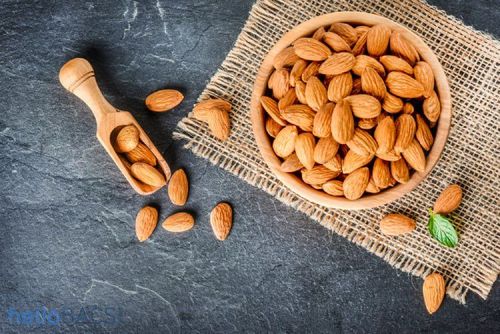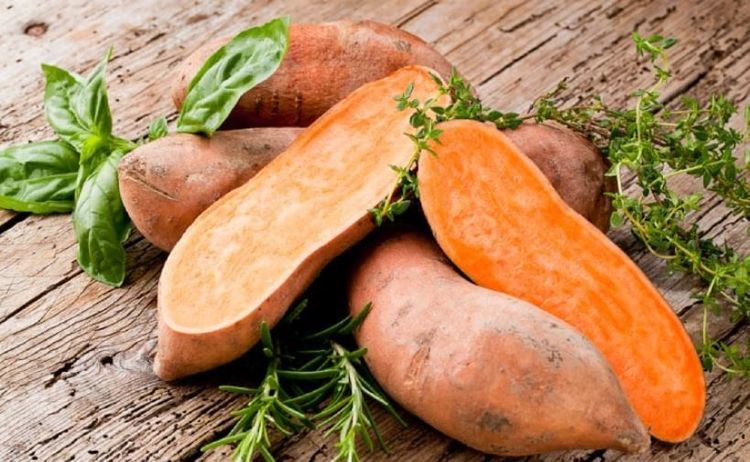Although height is largely influenced by genetics, providing adequate nutrition in the diet is essential for ensuring proper growth and development.
1. Relationship Between Food and Height
The body can develop and grow taller when it reaches its maximum height. Certain foods may aid in maintaining height by promoting the health of bones, joints, and the body overall.
For instance, protein plays a significant role in healthy growth while promoting tissue repair and immune function. Micronutrients such as calcium, vitamin D, magnesium, and phosphorus are associated with bone health and are central to growth.
Moreover, other studies have indicated that probiotics containing certain beneficial bacteria commonly found in fermented foods may also contribute to height increase in children.
2. 11 Foods That Help Increase or Maintain Height
2.1. Beans
Beans are highly nutritious and serve as an exceptional source of protein. Protein has been shown to elevate levels of insulin-like growth factor 1 (IGF-1), which is a crucial hormone for regulating growth in children.
Additionally, various types of beans are rich in iron and B vitamins, which are factors that can help protect against anemia—a condition characterized by a deficiency of healthy red blood cells in the body. Iron is not only necessary for tissue growth but iron-deficiency anemia can contribute to stunted height growth in children.
Furthermore, beans are abundant in several other nutrients including fiber, copper, magnesium, manganese, and zinc.
2.2. Chicken
Chicken is a protein-rich food along with several other essential nutrients. Chicken can be an excellent addition to a healthy diet. The nutritional composition of chicken has a relatively high content of vitamin B12, a water-soluble vitamin that is critical for height development and maintenance. Additionally, consuming chicken provides taurine—an amino acid that regulates the formation and development of bones.
While some nutrient characteristics in chicken may vary due to preservation and cooking processes, chicken remains a rich source of niacin, selenium, phosphorus, and vitamin B6.
2.3. Almonds
Almonds are packed with numerous vitamins and minerals essential for height development. In addition to containing healthy fats, almonds also supply ample fiber, manganese, and magnesium.

They are particularly rich in vitamin E, a fat-soluble vitamin that acts as an antioxidant. A deficiency of this important vitamin may lead to severe side effects, including stunted growth in children.
Furthermore, almonds may promote bone health. A study conducted with 14 participants consuming almonds indicated that almonds could inhibit the formation of osteoclasts—cells responsible for bone tissue breakdown.
2.4. Leafy Greens
Leafy greens such as spinach, kale, arugula, and cabbage are nutrient-dense plant-based foods. Although the exact nutrient content may vary among these vegetables, leafy greens commonly provide vitamin C, calcium, iron, magnesium, and potassium. They are also rich in vitamin K, a nutrient that may enhance bone density to support growth and help maintain height.
A recent study involving 103 women found that regular consumption of leafy greens was significantly associated with a lower risk of decreased bone mass.
2.5. Yogurt
Yogurt is a food source rich in essential nutrients for growth and development. Moreover, it is an abundant source of protein. In fact, 200 grams of Greek yogurt contains approximately 20 grams of protein.
Additionally, yogurt includes various probiotics—beneficial bacteria that can support gut health. Furthermore, it may enhance immune function and reduce inflammation. Some studies indicate that probiotics can promote children’s growth.
Yogurt also serves as a great food source for several nutrients associated with bone metabolism, including calcium, magnesium, phosphorus, and potassium.
2.6. Sweet Potato
Sweet potatoes are a beneficial food source, particularly rich in vitamin A. Consequently, they may enhance bone health and contribute to height development as well as maintenance.
Moreover, sweet potatoes contain a substantial amount of both soluble and insoluble dietary fiber. These fibers can promote gastrointestinal health and support the proliferation of gut microbiota. Maintaining a healthy gut microbiome can also enhance nutrient absorption, ensuring that the body receives adequate vitamins and minerals necessary for growth and development.
Additionally, sweet potatoes are packed with other essential nutrients such as vitamin C, manganese, vitamin B6, and potassium.

2.7. Quinoa
Quinoa is a highly nutritious grain often utilized as a substitute for other cereals in dietary regimens. It is regarded as one of the few plant-based foods containing complete proteins, meaning that quinoa is rich in all essential amino acids that the body cannot synthesize independently.
Furthermore, each serving of quinoa provides a significant amount of manganese, folate, and phosphorus, all of which are crucial for bone health.
2.8. Eggs
Eggs are indeed a protein-rich food source, with a single egg containing approximately 6 grams of protein. In addition, eggs are abundant in numerous vitamins and minerals essential for growth, including vitamin D. This particular nutrient can enhance calcium absorption, thereby supporting bone health.
A study conducted on children indicated that subjects with vitamin D deficiencies experienced growth improvements after supplementation over a six-month period. Furthermore, similar findings were observed in a study involving 874 children, where regular egg consumption correlated with monthly height increases.
2.9. Berries
Berries, such as blueberries, raspberries, and strawberries, are nutrient-dense and particularly high in vitamin C, which aids in cellular growth and tissue repair.
Vitamin C also enhances collagen synthesis, the most abundant protein in the body. Research suggests that collagen may increase bone density and improve bone health, potentially assisting in height development or maintenance.
Berries also provide an array of other vitamins and minerals, including fiber, vitamin K, and manganese.
2.10. Salmon
Salmon is one of the fatty fish rich in omega-3 fatty acids, which are heart-healthy and particularly important for growth and development. Additionally, salmon is high in protein, B vitamins, selenium, and potassium.
Several studies have indicated that omega-3 fatty acids may be associated with bone health and could promote bone formation to maximize growth potential.
2.11. Milk
Milk is generally considered a staple component of a healthy diet. It can facilitate growth by providing essential nutrients important for bone health, including calcium, phosphorus, and magnesium. Recent research has demonstrated that cow's milk can stimulate growth in children and support weight gain as well as muscle development. However, milk should be avoided if there are signs of allergy or intolerance.

Nutrition plays a vital role in promoting bodily growth and development. Adopting a comprehensive and diverse dietary regimen will supply a wide array of essential nutrients for the body.
Source: healthline.com
To arrange an appointment, please call HOTLINE or make your reservation directly HERE. You may also download the MyVinmec app to schedule appointments faster and manage your reservations more conveniently.
To arrange an appointment, please call HOTLINE or make your reservation directly HERE. You may also download the MyVinmec app to schedule appointments faster and manage your reservations more conveniently.








